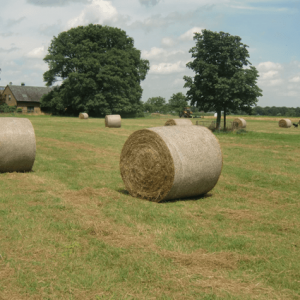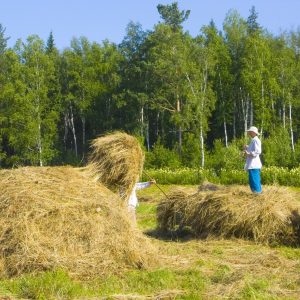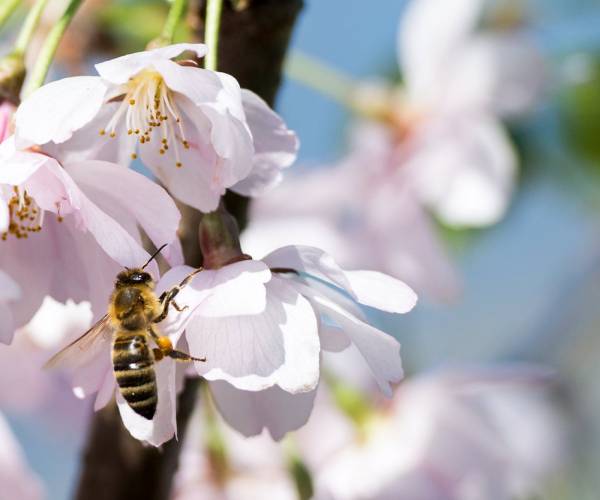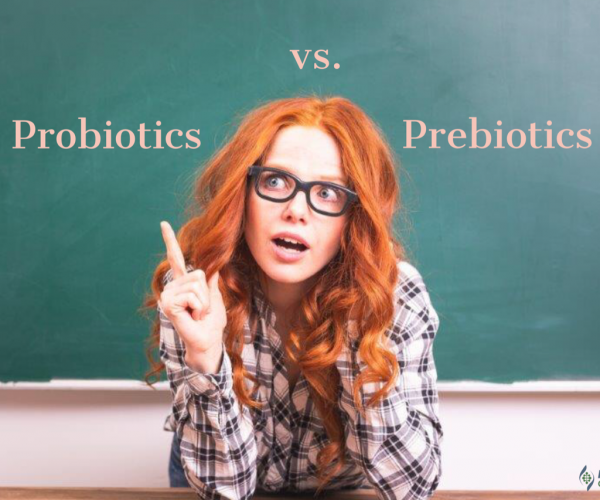


Through a targeted inoculation of the soil with starter cultures from MicroVeda microorganisms, plants grow healthier and as higher quality food or feed and can last longer as a crop. In combination with a sufficient amount of organic matter, the indispensable humus build-up of our cultivated soils can be accelerated and sustainably stabilized with MikroVeda microorganisms over time.
Why take care of the soil and not just the plant directly?
Plants feed mainly through their roots also from living protozoa, soil fungi and soil bacteria. This process is scientifically called endocytosis. MicroVeda microorganisms are the ideal food basis for this. As with us humans, the basis for healthy growth is what is ingested as food. The plant can therefore only be as healthy as the soil on which it grows.
In times of monoculture and pesticides our fields have already had to suffer enough from this kind of use, and some of the soils are in a catastrophic condition. If the field is plowed up directly after the harvest, the valuable, nutrient-rich layer comes up. If stronger winds or heavy rain follow in the next few days, precisely this valuable layer is removed, blown away or washed away. You don’t have to be a farmer to understand that these methods destroy the soils in our fields in the long term, depriving the plants of their important basis for growth and thus depriving them of nutrients from our own food.
So it is not enough to enrich the soils only with MicroVeda microorganisms. The important soil layers must be preserved and monoculture and pesticide use must be avoided as much as possible. This is because the microorganisms need a healthy environment to work more effectively. Once the foundation is established, they can help make nutrients available to the plant and create a healthy balance in the soil.
MicroVeda microorganisms only for arable soils?
Since microorganisms always work in community to sustain life, they can do so anywhere there is life. Thus, it is areas such as
Gardens
Fruit quarters
horticulture and agriculture,
that already appreciate the effect of MicroVeda microorganisms.
In agricultural stables, MicroVeda microorganisms are applied to prevent odors and keep the bacterial colonization healthy. Also, special preparations can be given to animals as feed supplements to support their digestive system with healthy intestinal flora.
In what form can MikroVeda microorganisms be applied:
Supplementary feed
Liquid activator
Ceramic powder
Liquid preparation as organic fertilizer
Can I activate and propagate the MikroVeda microorganisms myself?
Yes, the MikroVeda stock solution is suitable for this purpose.
This stock solution can be diluted with water, for all applications 1:100, young plants 1:400, used directly or for larger quantities as a starting product for the self-production of 33 liters of an activated preparation. Thus, even from 1 liter of MikroVeda stock solution and 1 liter of sugar cane molasses 33 liters can be activated and thus be propagated. This solution is then also diluted 1:100 or 1:400 (young plants) with water.
For flat garden beds, use a self-propagated solution: dilute 2 liters with 200 liters of water for 100 square meters.
For arable land and grassland, use a self-propagated solution: dilute 200 liters for 1 hectare with as much water as possible and apply annually in two applications of 100 liters each in spring and fall during light rain or closed cloud cover. The water is only the carrier for the solution.
Can the multiplication be performed more frequently?
The multiplication should not be performed more frequently, because the quality of the microorganisms decreases strongly with each activation. You should always add a new stock solution when activating and propagating again!
Why choose MikroVeda microorganisms?
MikroVeda stock solution is a product tested by Ökop Zertifizierungs GmbH in our company. It may be used in organic farming according to regulations (EC) No. 834/2007 and (EC) No. 889/2008.
It is also listed in Germany in the Betriebsmittelliste für den ökologischen Landbau of the Research Institute of Organic Agriculture (FiBL). In addition, MikroVeda has perfected the bacteria combination and the fermentation technology in over 20 years of experience and thus continues to rely on its quality craft in the future.
Popular posts

Microbiome Balance on the go
Time for holidays – The microbiotic mouth spray M33+ with you on your travels. More than ever, we long for…

Microbiome Balance for horses
Feeding, care, stable cleaning, pasture management – a comprehensive, organic concept for your horse! A horse of your own –…

Bee care completely without chemicals?
A brief introduction for the occasion: May 20 is World Bee Day! On the occasion of this day, it is…

Naturally support worming treatment in dogs and cats
Veterinarians recommend: Dogs and cats should be wormed regularly, it is part of the annual routine for us pet owners.…

Microbiome, fatigue, depression – How our bacterial diversity affects our mind!
From fatigue, exhaustion and listlessness to depression: How do spontaneous or often permanent mood states come about in the first…

Garden start March-April in Germany: What to do now?
The first rays of spring sunshine and it draws us garden friends out into the green. Since there is not…

At what time of day should I take the MikroVeda microorganisms?
Dietary supplement before or at mealtime? Liquid ferment as a dietary supplement at any time of day? What should be…

Remove adhesive residues from tiles, MikroVeda Lifehack with Blond or Clean
Lifehack report “Good bacteria in use”: That moment when you want to take the bathroom mat aside and it sticks…

What is the difference between probiotics and prebiotics?
Current knowledge teaches us in our everyday nutritional teachings that we should consume both pro- and prebiotics to support healthy…

